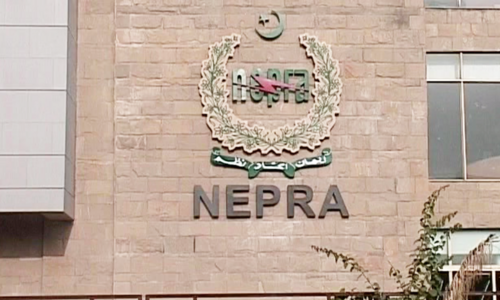ISLAMABAD: With a majority vote, the National Electric Power Regulatory Authority (Nepra) on Tuesday rejected on technical grounds, rather than on its merits, a federal government’s request to increase electricity tariff for K-Electric consumers by an average Rs3.5 per unit for three months.
Interestingly, Nerpa had conducted the joint public hearing on two requests by the government for increasing the KE tariff by a cumulative Rs6.02 per unit under quarterly tariff adjustments (QTAs) to reduce the burden on the national exchequer by Rs20 billion.
Under the first request, the regulator had last weekend allowed Rs1.55 per unit increase in QTA for the second quarter (September-December) of FY22. However, on Tuesday, it disallowed another increase of up to Rs4.45 per unit for the first quarter (June-August) of FY23.
Three provincial members of Nepra from Sindh, Khyber Pakhtunkhwa and Punjab rejected the request for tariff increase for the first quarter (July-September 2023), saying this did not appear to be for the purpose of national uniformity of electricity rates and was also not covered under the existing legal framework and policy guidelines of the government. However, they said the request could be entertained once fresh tariff guidelines are issued by the government that is currently processing them.
Sindh, KP and Punjab oppose, Balochistan supports increase under quarterly tariff adjustment
Nepra member from Balochistan issued a dissenting note saying the three provincial members had “taken a constricted interpretation of the law and ignored the prevailing situation of the country”. He said the tariff increase as requested by the power division of the energy ministry should be allowed and observed that there were “reasons to consider the subsidy to maintain uniform tariff in totality on an annual basis” and that the federal government’s discretion over the financial situation should not be challenged by the regulator.
Interestingly, the Nepra chairman sided with the minority view but shifted the responsibility also to the federal government, saying the regulator also “needs clear guidelines from the GoP for considering such request”.
Through the petitions, the power division sought implementation of Nepra’s previous determinations envisaging up to Rs4.45 per unit quarterly adjustment for the first quarter of FY23 (July-September) and Rs1.55 per unit for the second quarter of FY22 (October-December) to the KE consumers.
The government told Nepra that under the National Electricity Policy 2021, it had to maintain a uniform consumer-end tariff for K-Electric and state-owned distribution companies (even after privatisation) through incorporation of direct/indirect subsidies. Accordingly, KE applicable uniform variable charge is also required to be modified so as to recover the revenue requirements of KE, determined by the regulator in consistent with the uniform national tariff of Discos which had already been approved by the federal cabinet.
On Tuesday, Nepra ruled that the National Electricity Policy 2021 allowed the government to maintain a uniform consumer-end tariff for K-Electric and state-owned distribution companies through incorporation of direct/indirect subsidies but that was not the case under the government request.
Published in Dawn, May 24th, 2023















































Dear visitor, the comments section is undergoing an overhaul and will return soon.